Citronella oil: properties and uses

The amazing citronella oil has long ceased to be something exotic. Various lemongrass extracts are often found on store shelves in the form of oil essences and elixirs. The oil is valued for its healing properties, therefore it is used in many areas: cosmetology, household chemicals, perfumery, folk medicine and cooking.
Citronella oil composition
Lemon grass, lemongrass, limonella, shuttlebeard, cymbopogon, lemon grass - these are all varieties of the same plant - citronella vulgaris.
All of them contain essential oils that are similar in smell to citrus fruits. Along with this, they have a delicate aroma of freshly cut grass. Together, a unique bouquet of fresh aromas is created, giving vigor and good mood.
Lemon grass Andropogon grows as a short spider, very similar to the decorative species, belongs to the mannik family. The habitat is Sri Lanka, Java and South America. Not so long ago, they began to grow it in Africa. The thermophilic plant is very demanding on moisture and can be grown at home.
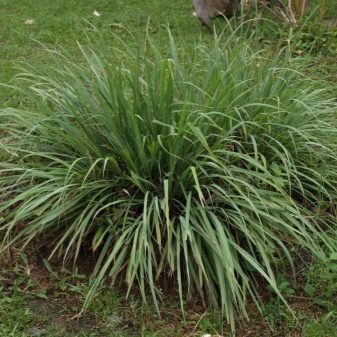
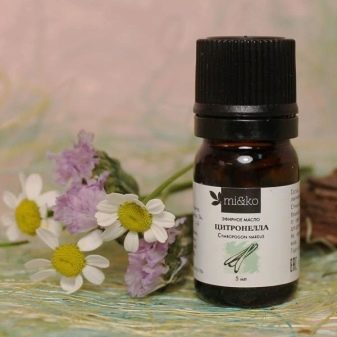
The herb is grown solely for the oil. It is obtained by steam distillation from raw grass.
The herb is used in cooking in the form of a salad and as a part of seasonings and sauces for meat, fish and vegetables. Dried citronella leaves are brewed in tea to invigorate and increase the overall tone of the body. This herb is a popular ingredient in air fresheners, aerosols, and deodorants.
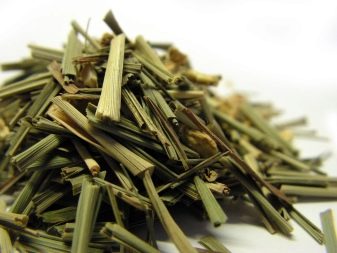
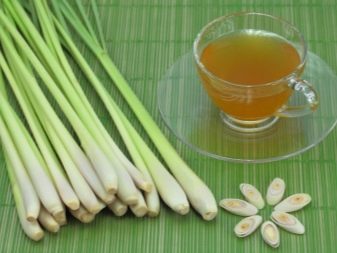
Citronella oil has a smooth, herbal-colored consistency. The oil contains an extract of the herb, per 100 grams of which there are the following nutrients and minerals:
- proteins - 1.9 g;
- fats - 0.5 g;
- carbohydrates - 26 g;
- water - 70.6 g;
- ash - 1.9 g;
- beta-carotene - 0.004 mg;
- vitamin B1 (thiamine) - 0.066 g;
- vitamin B2 (riboflavin) - 0.136 g;
- vitamin B5 (pantothenic acid) - 0.06 mg;
- vitamin B6 (pyridoxine) - 0.09 mg;
- vitamin B9 - 76 mcg;
- vitamin C (ascorbic acid) - 2.7 mg;
- vitamin PP - 1.102 mg.
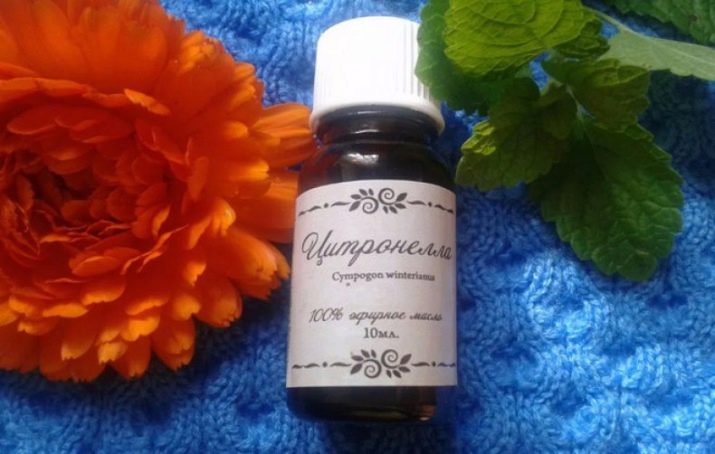
If we consider macro- and microelements, then it is worth noting the following:
- potassium - 724 mg;
- calcium - 66 mg;
- sodium - 5 mg;
- magnesium - 59 mg;
- phosphorus - 102 mg;
- manganese - 5.223 mg;
- iron - 8.18 mg;
- selenium - 0.6 mg;
- zinc - 2.24 mg.
Monounsaturated, saturated and polyunsaturated fatty acids are represented by the following:
- palmitoleic - 0.013 g;
- omega-9 (oleic) - 0.043 g;
- omega-3 - 0.032 g;
- omega-6 - 0.139 g;
- palmitic - 0.085 g;
- stearic - 0.013 g;
- arachidic - 0.006 g;
- coastal - 0.008 g;
- myristic - 0.003 g;
- linoleic - 0.139 g;
- linolenic - 0.032 g.
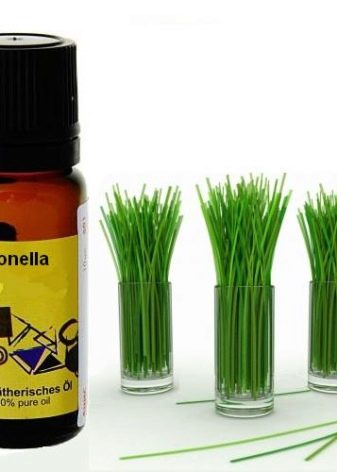
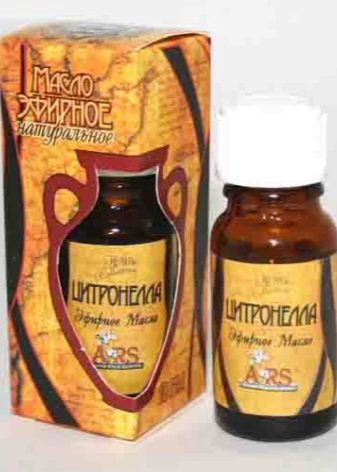
All of these substances present in lemongrass are retained during oil production.
Plus, the oil composition contains esters, phytosterols, citronellol aldehyde with a lemon scent and geraniol with a rose scent, farnesol, first isolated from Farnese acacia, camphor scent campen, a cinnamon compound methyleugenol and many other compounds that provide the oil with unique properties.
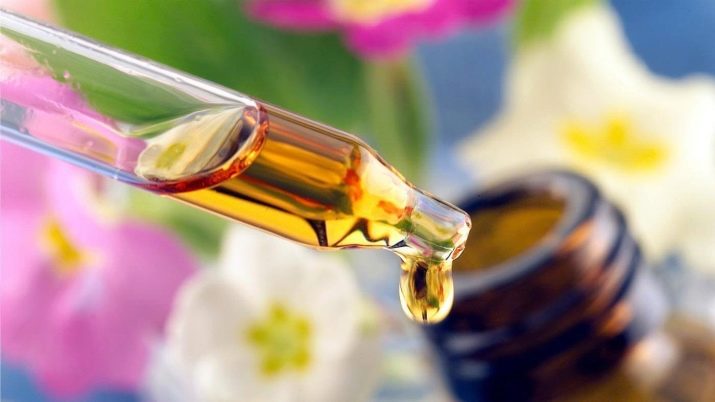
Properties
For external and internal use, essential the composition of the oil has the following properties:
- removes decay products, poisons and toxins;
- relieves grounding and muscle spasms;
- tones and strengthens capillaries and blood vessels;
- enhances immunity during seasonal exacerbations of colds and flu;
- normalizes digestion;
- has diaphoretic and diuretic effects in viral diseases;
- deodorizes and protects the skin from harmful bacteria;
- the smell of citronella scares away insects;
- used in aromatherapy.
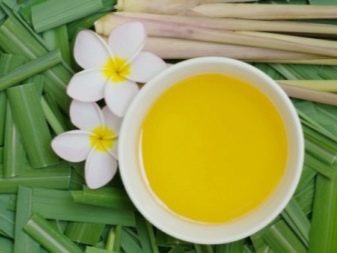
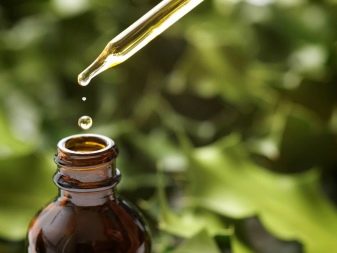
The oil is extracted from the green parts of the plant on the ground. The properties of aroma oil are used for the following problems:
- otitis media, pharyngitis and edema of the maxillary sinuses - as an external agent;
- headaches and dizziness - inhaled to improve cerebral circulation;
- vegetative-vascular dystonia, pressure drops and tinnitus - externally, rubbing into the temples;
- skin problems, acne and acne - adding to your daily skincare products;
- anemia and anemia - as a general tonic, raising vitality.



Application
Citronella oil is used in a number of the cases described above only in small quantities. Due to the high concentration of biologically active substances, it is advisable to simply add it to any base. There are some rules for using the product.
In cosmetology
Citronella oil is often used in cosmetology for various purposes.
- For external use - for the treatment of affected skin surfaces with eczema, sunburn, allergic rashes and other lesions. The oil is applied with fingertips or in the form of compresses, previously applied to gauze.
- As a massage aid. To prepare a massage base, take any oil, for example, linseed oil, and add a few drops of citronella to it.
- To lose weight and get rid of cellulite, take baking soda, salt in half a glass, a little citronella, mix everything and apply with massage movements in the shower. After a while, wash off with plenty of water. If you do this procedure at least once a week, the "orange peel" from the skin surface will gradually disappear.

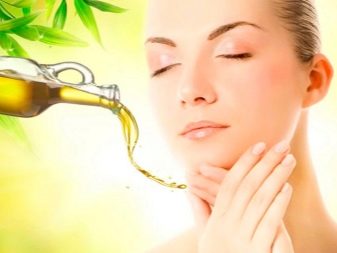
- Citronella is actively used in spa treatments. The oil composition is added to the bath. The procedure normalizes the nervous system, stabilizes the water-alkaline balance in the body, replenishing the loss of nutrients. In general, it has a beneficial effect on the general condition of the human body.
- When enriching feed, ointments, lotions, elixirs, emulsions and other cosmetics, add a few drops of lemon grass essential oil to their compositions.This procedure should be carried out immediately before the application itself on a small amount of the base, based on the calculation - for one-time use.
- A number of procedures are carried out for sweating of the feet. During the week, they make foot baths, adding healing oil to the water.
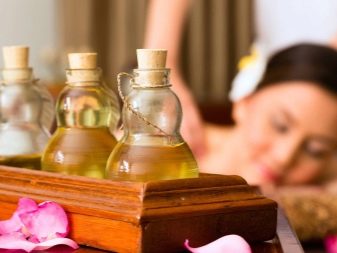
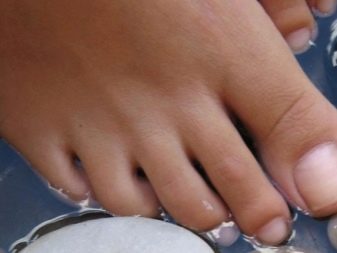
- For skin regeneration, whitening, getting rid of age spots, freckles, scars and stretch marks, problem areas are treated with citronella with a cotton pad dipped in its aqueous solution. The remedy is also able to get rid of acne, acne and other inflammatory skin diseases.
- To remove warts, papillomas and other formations, skin areas are treated with an ear stick dipped in citronella concentrate. After application, a burning sensation or slight tingling is possible, which means the effectiveness of the method.
- In perfumery compositions of domestic and foreign manufacturers as famous brands: Chanel, Christian Dior, Lacoste, Versace, Givenchy, Guerlain, Avon, Yves Rocher and others. When using this or that type of perfume or eau de parfum, be aware that citronella essential oils are certainly present in its composition.
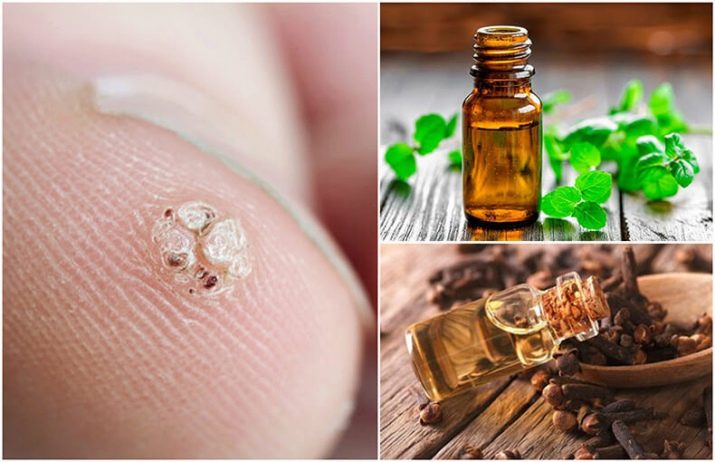
In everyday life and folk medicine
Lemon oil is widely used both in everyday life and in folk medicine.
- In inhalation for colds, medicinal oil is added to steam baths. Separately prepare a herbal composition of sage, mint and St. John's wort in equal amounts. Filling the herbs with water, bring to a boil, remove from the stove, introduce five drops of citronella. These vapors are inhaled by covering the head with a large terry towel for 10-15 minutes. If necessary, fold back the edge of the towel to normalize the vapor temperature.
- For aromatherapy use special ceramic or iron lamps heated by a candle or electricity. They must be made of heat-resistant material. Essential oil is poured into these lamps. When heated, aromatic vapors spread in the room, filling it with a pleasant lemon scent. Inhalation of vapors produces a therapeutic effect: headaches, seasonal blues and depression go away.
- As an aphrodisiac use tonic massages, alternating with aromatherapy.

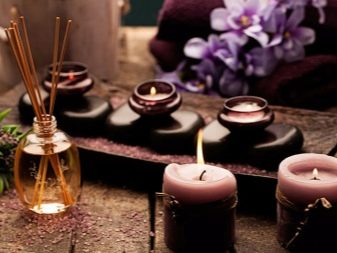
- With sprains and excessive stress on the muscles, rubbing with citronella essential oil is also used. The procedure restores muscle elasticity, promotes the elimination of lactic acid, eliminating painful effects. Therefore, this oil is essential for athletes, bodybuilders and all those involved in the gym.
- Possesses a pronounced insecticidal effect. A few drops of oil applied to insect repellent plates work wonders. Not only mosquitoes and annoying midges are disappearing, but also dangerous ticks, fleas and ants. The same effect is given by aroma lamps with the medicinal composition of citronella.
- To cleanse the house 10 drops of oil are added to the washing water. The result is a disinfecting compound that can be used to wash everything: from furniture to the floor. In addition, in this way, the room is deodorized, since the unpleasant odor is removed.


- For the treatment of head lice Citronella oil is rubbed into the scalp, held for 35 minutes, then washed off with shampoo with the same oil. Next, comb the hair with a fine comb dipped in an oil solution.
- When treating pets for fleas prepare a shampoo containing a healing oil, with which the wool is thoroughly washed. The procedure must be carried out several times, until the fleas disappear completely. To maintain the effect on the neck of the animal (dog, cat), you need to put on a special collar soaked in citronella oil.

Important! Before using citronella oil, a product tolerance test must be performed.
To do this, apply a remedy to the bend of the elbow and wait about a day. In case of individual intolerance and allergic reactions, expressed in redness and itching, do not use this type of product.Pregnant women, elderly people and children should use oil with caution, as it can stimulate the body and increase blood pressure.

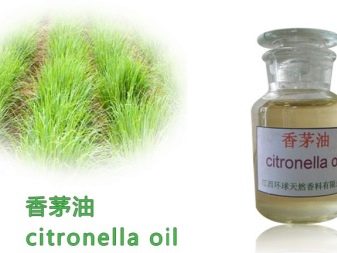
Selection Tips
As you can see, there are a lot of ways to use oil. So it's safe to say that citronella oil is a versatile remedy. The main thing is to choose the right quality product.
Now on the market for this type of product, you can find both high-quality oils and cheap counterparts, low in price. However, one should not jump to conclusions and purchase insanely expensive citronella oil. A high price is not yet a guarantee of quality.
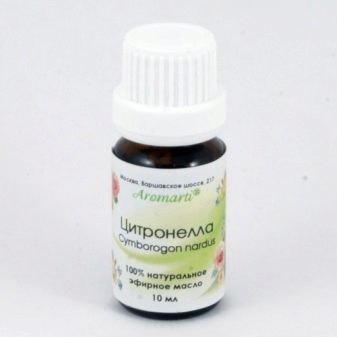
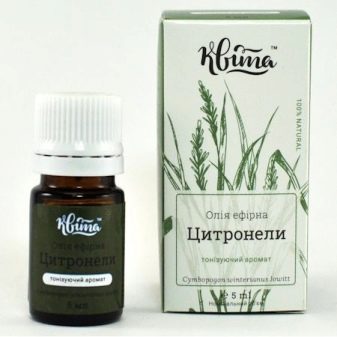
If you want to purchase quality products, follow these rules:
- the product must have a mandatory certification and license, the so-called quality passport;
- such a product is sold exclusively in pharmacies or specialized stores;
- try not to buy essential oils for bottling, as they are not intended for contact with air and the quality of such a product is very low;
- do not take any oils of homemade "grandmother's" production from your hands, otherwise you risk ending up in a hospital bed instead of the desired magical effect;
- carefully look at the timing of the sale of this type of product, which should be in order, and not 1-2 days before the end of the period;
- the storage temperature of essential oils should not exceed +23 degrees, so make sure that the room where these products are sold is not too hot; at high temperatures and in the wrong form, oils quickly lose their properties, their shelf life is significantly reduced.
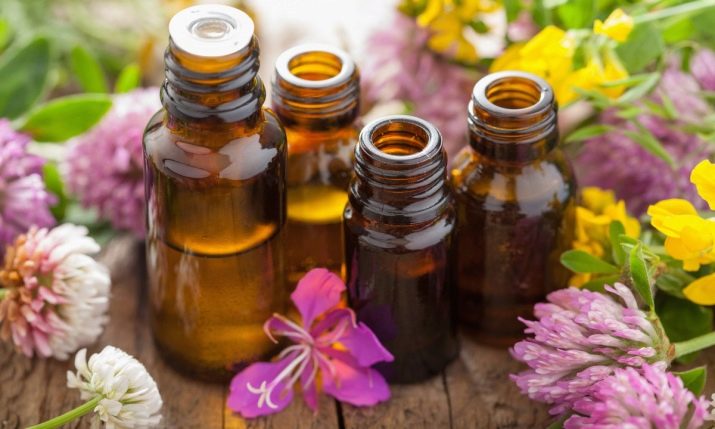
The approach to purchasing a product is professional. Your choice, and therefore health, depends on these factors.
All this you need to know, intending to purchase good quality citronella essential oil. You should not purchase dubious oils of unnatural colors in bright, flashy packages.
Learn more about using citronella oil in this video.








